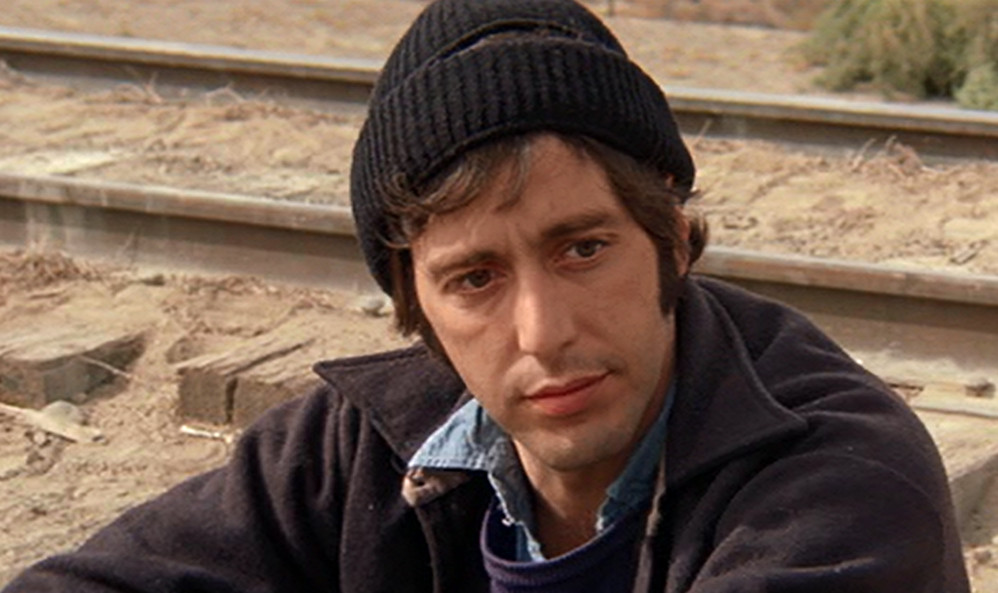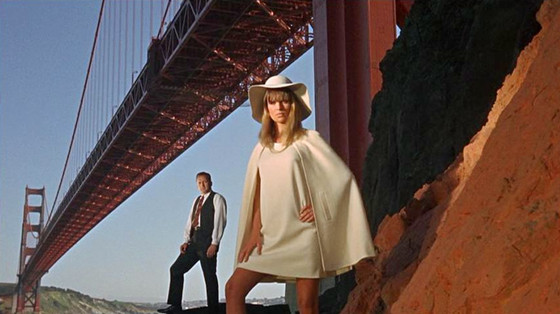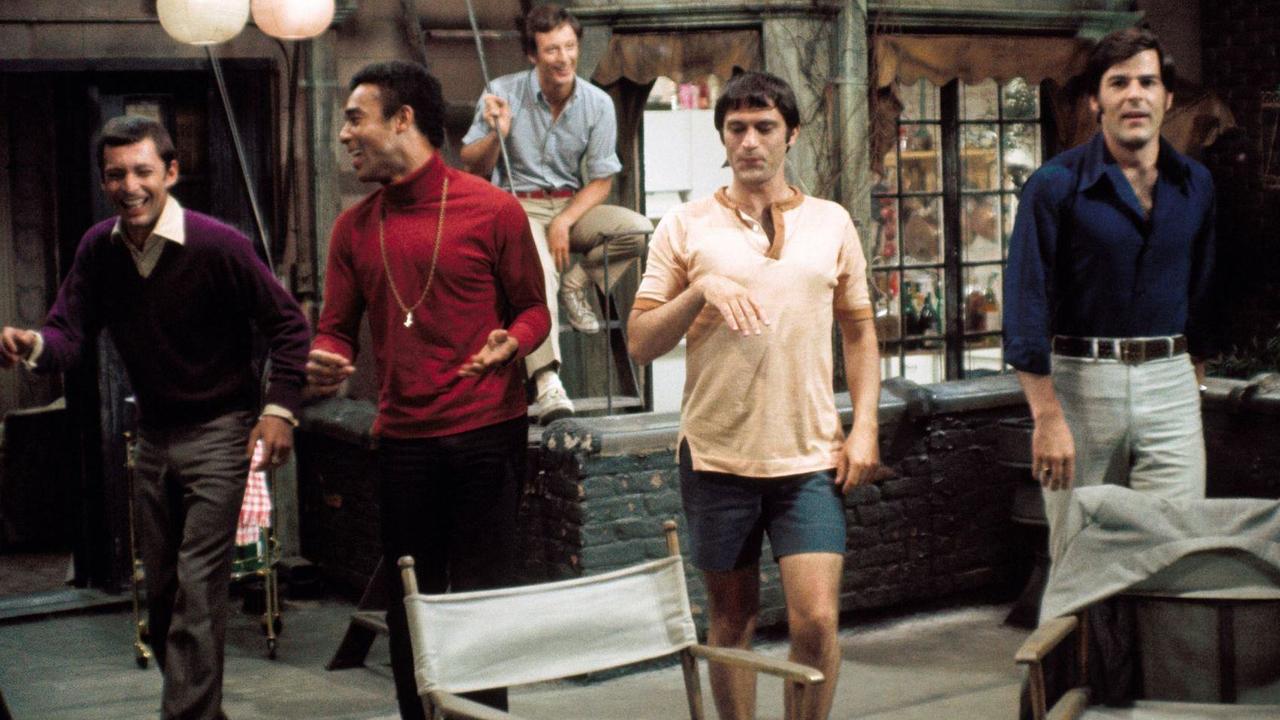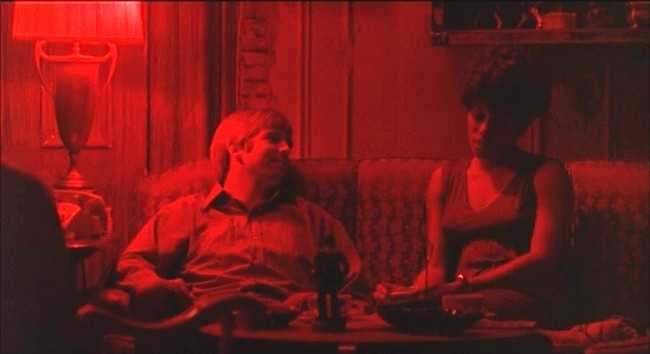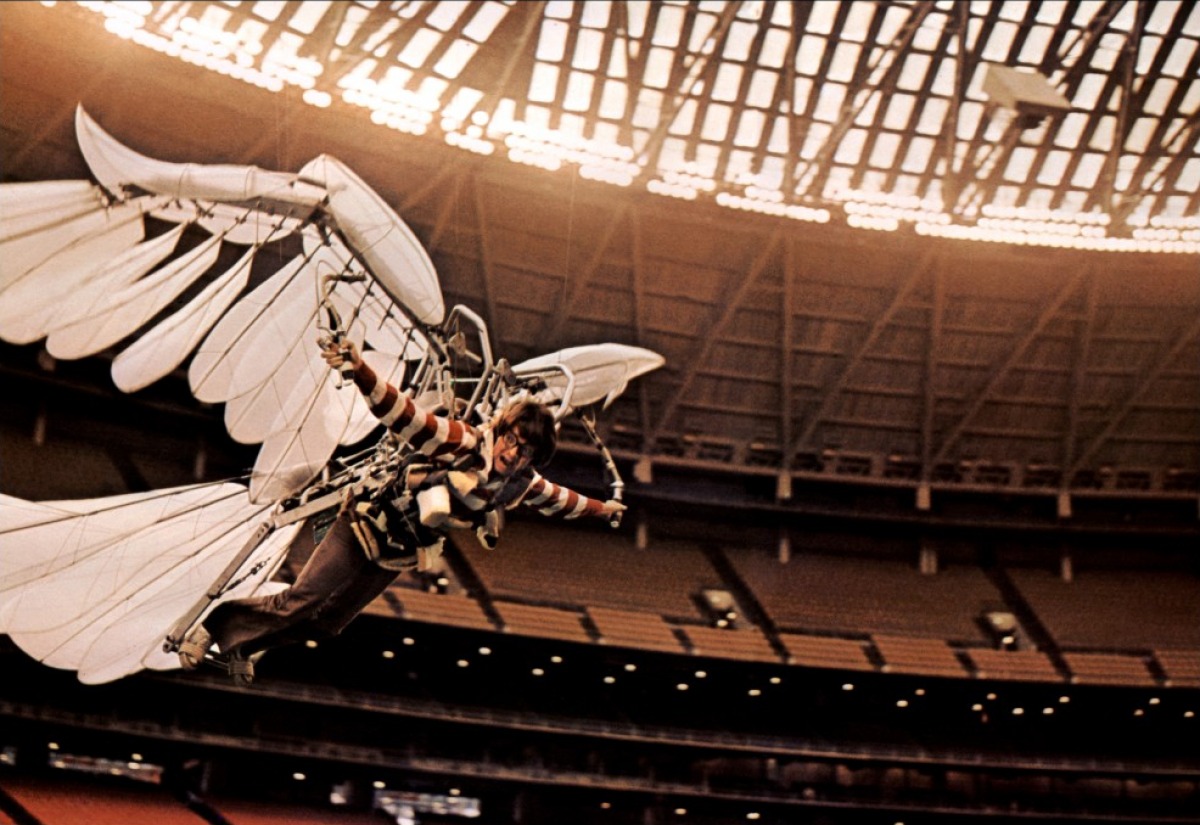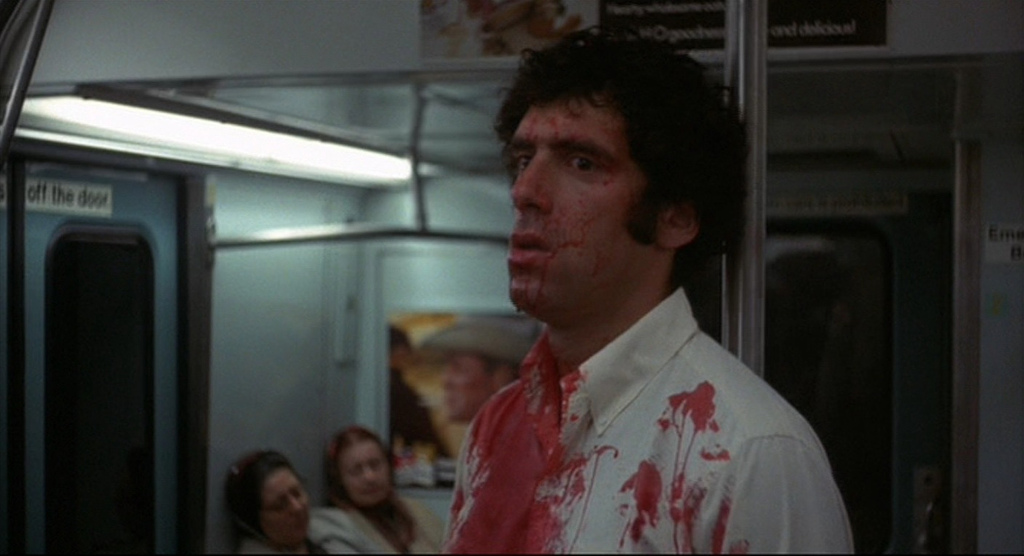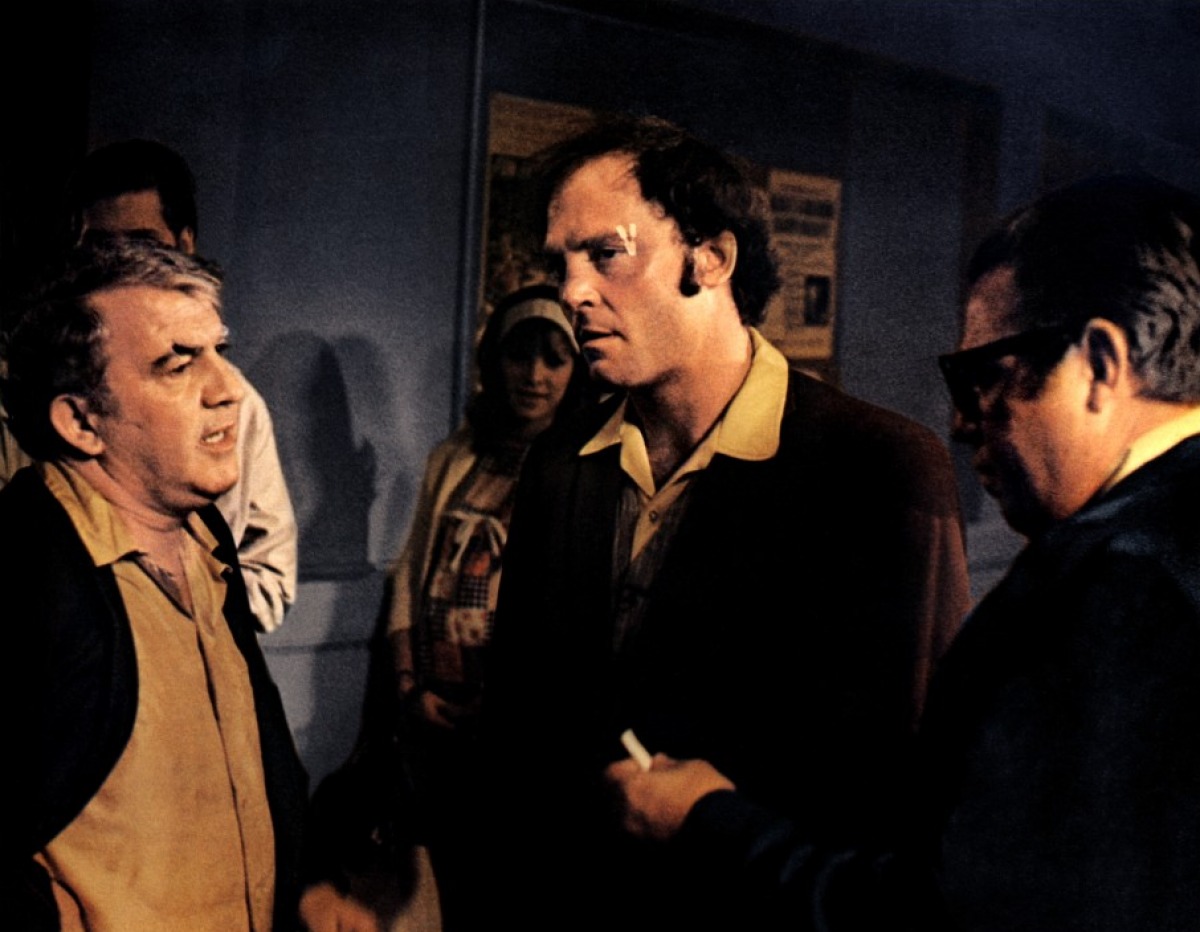After World War II ended, the tumultuous world created in its wake gave birth to new film movements which showcased new cinematic techniques and more realistic themes and characters. These movements featured such monikers as the Neorealist movement (Italy), the New Wave (France) and the Prague Spring (Czech). It’s not that surprising that among the last countries to feel this influence were the stable Great Britain (British Kitchen Sink school) and the bastion of non-realistic glamour, Hollywood.
Even coming last at the end of the 1960s, Hollywood didn’t give up old ways without a fight and it took the release of 1969’s Easy Rider to really change things. That film was made with actors who had been around for a long time without becoming major stars, one of whom directed the film without any previous directing experience, centering on characters and subject matter not then usual for Hollywood. Best of all, it was made for very little and grossed very much.
These facts prompted studio execs, many in the senior citizen range, to give chances to new, often untried, young filmmaking hopefuls. Some would stay to create majors careers, many would have but a film or two to their credits. The New Hollywood era would last about a decade and wouldn’t be the most financially remunerative time in Hollywood history but, in terms of quality, it was one of the best. Listed below are some interesting, in some cases fine, films of that era which didn’t receive much notice.
1. Petulia (1968)
If there was a great lost director from the New Hollywood era, then that man might well be Richard Lester, an American who worked mostly in England (notably 1964’s A Hard Day’s Night). He made a few films in the U.S and critics and audiences generally weren’t encouraging. Sadly, one of his very best films received the harshest treatment at the time of release.
Petulia is the story of brief love affair between two conflicted people. Archie Bolen (George C. Scott) is a gifted and successful San Francisco based surgeon who, for reasons he can’t explain even to himself, has walked out on his virtuous and loving wife, Polo (Shirley Knight), and two young sons.
One night at charity event, he is virtually ambushed by Petulia Danner (Julie Christie), who is youthful, beautiful, kooky in a free-spirited way and most unhappily married to David (Richard Chamberlain), the handsome young scion of a wealth old California family. Things turn out badly for the pair, despite the genuine feeling they achieve together, and the short affair ends up only making thing worse for Petulia, though Archie is left freed to explore his life options due to her influence.
This film provided a perfect showcase for Scott’s considerable talents and gave great parts to the other cast members. Many were initially put off by the film’s deliberately jumpy, elliptical style which only coalesces as the film goes along and the themes concerning adults entering middle age, but the film has triumphantly stood the test of time.
2. Goodbye, Columbus (1969)
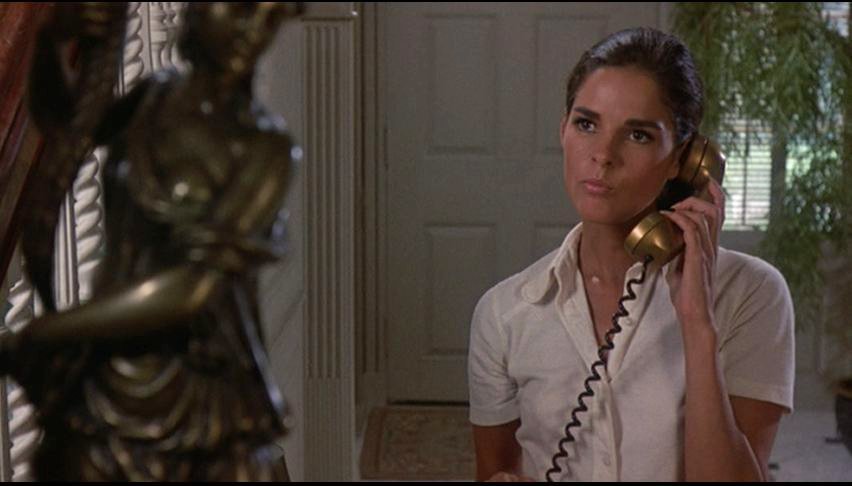
One of the interesting qualities of New Hollywood was the fact that actors less than movie star handsome or beautiful might be given a chance and that the people on the screen became notably less white bread. A perfect film to illustrate these points is Goodbye, Columbus, a version of distinguished writer Philip Roth’s short novel of the same name.
The story centers on plain, poor and likable library worker Neil Klugman (Richard Benjamin) who meets up with JAP Brenda Patimkin (Ali MAcGraw) on the one day each summer his nouveau riche cousin Doris invites him to her country club outside of New York City.
Though both are Jewish, lovely Brenda is doing her best to deny it, including getting a nose job. It turns out that her family, outside of her successful, hard working dad (Jack Klugman), are pretty nouveau themselves and are also quite eager to bury their roots. Neil, in addition to the high crime of not having money, is way too close to those roots for them, especially the family’s socially pushy matriarch (Nan Martin).
That the film film even addresses aspects of American Jewish life such as the self-contempt and materialism many successful Jewish people may share is remarkable. Though a large segment of those in the film business are Jewish, films overtly addressing Jewish concerns were quite rare before this time.
3. The Boys in the Band (1970)
If the subject of homosexuality was discussed at all in traditional Hollywood, it always seemed to concern flouncy comic relief characters or gay characters doomed to kill themselves since they couldn’t live with the shameful burden of it all.
Maybe the strides forward have been slow and hard in coming, but every film that tried to see gay men and women as human beings like all others have helped. That’s why it’s a shame that many over the years have hated The Boys in the Band, a landmark film of the New Hollywood era.
Taken from a hit Off-Broadway play, the film centers on a group of gay men, many in show biz, who have gathered to celebrate the birthday of a friend. Surely he would rather have had a gift certificate since the whole evening degenerates in bitter recriminations and painful truths with a willfully obtuse character claiming to be straight and not understanding the goings on around him being the catalyst.
It may have played into the old tropes a bit (both ways) but, written by an openly gay playwright, it also contained some less than pretty truths.This was also the first film of note from director William Friedkin, a big force later in New Hollywood history.
4. The Landlord (1970)
If there was a director who was truly emblematic of New Hollywood, then that man would be Hal Ashby. An ultra-free spirit who totally embraced the Hippie lifestyle, Ashby had been a top film editor in the 1960s, winning an Academy Award for the Best Picture winner of 1967, In the Heat of the Night, a film he had no small part in guiding. That experience set him on the road to his own directing career, which he handled brilliantly throughout the 70s.
His first was The Landlord, a fine serio-comic study of race relations no one much went to see. Elgar (Beau Bridges) is the son of a wealthy family. He has charm to spare but is very callow.
On a lark he decides to buy a rundown brownstone in an ethnic part of town, evict the tenants and create a “shabby chic” new home for himself in what he hopes will then start to become a newly restored fashionable section. Oh, but the people he thinks will be so easily pushed out are a tougher bunch than he considered and they won’t go without a fight.
Though the issues at the heart of the film are quite serious, Ashby, the cast, and the writers put in a lot of skill and humor into it. Besides Bridges, a very good actor who found more of a home on TV than the movies, the excellent cast includes the ill-fated Diana Sands, Louis Gossett,Jr., Pearl Bailey in what may be her best performance and, especially, Oscar nominated Lee Grant as Elgar’s limousine liberal mom.
5. Brewster McCloud (1970)
Robert Altman, after many years of struggling as a TV and movie director, lucked into one of the biggest hits of that era with 1970’s M*A*S*H. As it turned out he never had another box office hit to match that one, but he was launched on a major career. Brewster McClould was his first film after that hit.
Where to begin? Well, there is the plot: owlish Brewster (Bud Cort) lives in a secret lair under the Huston Astrodome. He seems to be obsessed with birds, but it turns out that he’s studying them in order to facilitate his real obsession: building a pair of wings which will enable him to fly in the Astrodome. Right. Add to this, the unusual presence of a woman (Sally Kellerman) who seems to be either an angel or Brewster’s fairy godmother until he disobeys her and she deserts him.
It also seems that those getting in the way of the boy’s weird quest are being found dead and covered in bird droppings, though who actually kills them is never revealed. One more lunatic element involves scenes edited into the action, showcasing a stuffy ornithologist (Rene Auberjonois) giving a lecture on bird life and slowly becoming more birdlike himself as the film progresses.
One could well think that Altman might just have been trying to see how much he could get away with, but the film has some interesting qualities and some effects he would use so well in his masterpiece, Nashville (1975).
The quirky cast includes early Altman regulars Michael Murphy, Bert Remsen, John Schuck and a debuting Shelley Duvall as well as an unrecognizable Stacey Keach and Margaret Hamilton as a rich, nasty old lady who gets dispatched but also gets the heart’s desire of her most memorable character.
6. Little Murders (1971)
Those who only know the updated, tourist friendly New York City of today might well not know that this largest, busiest, proudest of U.S. cities went through one bad time back in the late 60s and into the 70s. NYC was strung out financially, emotionally, physically, and the morale couldn’t have been much worse. More than one film commented on this though most of them, oddly, were very black comedies.
The blackest of them all was Little Murders, adapted from the play by its author, celebrated cartoonist and humorist Jules Feiffer. The film centers on Patsy (stage star Marcia Rodd), an absurdly optimistic New Yorker who soldiers on in the face of blackouts, brownouts, garbage strikes, gangs, apathy, and random murders, some in her own family, committed for no reason by unknown assailants the ineffectual police will never hope to catch. She meets photographer Alfred (Elliott Gould), who has numbed out a long time ago.
Since he has no will left to say no, she ropes him into marriage and the two, each in their way, try to survive in one hostile city. This is funny in a desperate way, but it was also a little too close to the truth of that time to be comfortable. The film was the best directorial effort of actor-director Alan Arkin.
7. Fat City (1972)
Classic era directorial great John Huston seemed to just be wating for New Hollywood and its freedoms to happen. Coming off a bad half decade or so, Huston stunned the 1972 Cannes Film Festival with his out of competition entry, for which there had been no great expectations.
Fat City, adapted by Leonad Gardner from his own novel, dealt with a number of down and out residents of then contemporary Bakersfield, California. The main focus is on Tully (an excellent Stacey Keach), who once was a promising boxer but now labors picking crops to support his drinking habit. He befriends young Ernie (Jeff Bridges, quite early in his career), who hopes to be a boxer and falls in with brassy but pathetic barfly Oma (a stunning, Oscar nominated Susan Tyrell).
Huston is unsparing but compassionate in depicting the hopeless lives inhabiting a bleak milleau. No one much came to see it, but it set Huston on a new and fertile career path for the next two decades.
